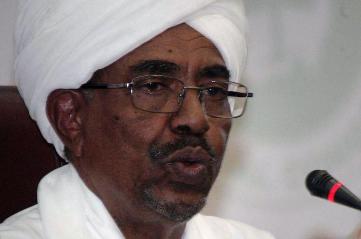Sudanese president directs cabinet to fight corruption and uphold accountability
March 23, 2014 (KHARTOUM) – Sudanese president Omer Hassan Al-Bashir has laid out the guidelines of a reform plan before cabinet in an emergency session on Sunday, directing ministers to fight corruption and uphold the principle of accountability.

Bashir also directed the subcommittees to hold a weekly meeting, while the higher committee would hold a bi-monthly meeting and submit a quarterly report to evaluate performance and develop an implementation matrix for the plan.
He further instructed ministers to inspect people’s conditions in the various states, announcing that government officials, including the president, would use the locally assembled Chinese cars BYD brand as part of the austerity measures.
The Sudanese president called for equal distribution of wealth and power between the centre and the peripheries and for people to renounce tribalism and regionalism.
He said the coming period will witness a campaign for fighting corruption and upholding accountability within an integrated system which involves executive and legislative bodies besides the media.
Bashir also called for a review of the unlawful enrichment law and limiting of public immunities, urging the cabinet to launch initiatives in order to enhance confidence in the government’s performance.
The guidelines also included other issues such as economic reform and promoting international cooperation, particularly with South Sudan, Egypt and the Arab Gulf States.
The president emphasised that he seeks to arrive at a consensual constitution which ensures individual and collective rights and regulates the political process as well as reaching a political partnership in order to overcome the current crisis and achieve renaissance and balanced development.
He underscored importance of achieving justice between the centre and the peripheries through balanced development and restoring security and stability in Darfur, South Kordofan and Blue Nile states.
Presidential assistant Ibrahim Ghandour proposed translating those guidelines into foreign languages and making it available for Sudanese embassies abroad and demanded coordination among various ministries, criticising contradictions in the information provided on Sudan’s exports.
Sudan’s second vice-president, Hassabo Mohamed Abdel-Rahman, for his part, said that reports which are submitted to the cabinet do not fully reflect the facts, particularly with regard to the situation in Darfur, saying the region is currently recovering from the consequences of the long-running civil war.
He asked the ministers to engage in field work in the states instead of staying in Khartoum and criticised bureaucracy and slow pace of performance, demanding effective monitoring and evaluation.
In a televised address to the nation late last January, the Sudanese leader announced a four-point plan for reform “to stop the war and bring peace, free political society, fight against poverty and revitalise national identity”.
He further called for political forces and even rebel groups to lay down arms to engage in dialogue to agree on the implementation items to achieve these objectives.
Bashir afterwards met with several opposition leaders, but it is not yet clear how the dialogue call will be implemented amid deep scepticism over the willingness of the ruling National Congress Party (NCP) to implement deep reforms.
So far NCP officials, including Bashir, have brushed aside opposition calls for the 2015 elections to be delayed and the formation of a transitional government that would work on drafting a new constitution to prepare the country for the polls.
The opposition National Umma Party (NUP) and the opposition Popular Congress Party (PCP) are the only major opposition parties who have so far accepted Bashir’s call for national dialogue.
But both parties warned that they would pull out of dialogue with the NCP if no progress is made.
(ST)
